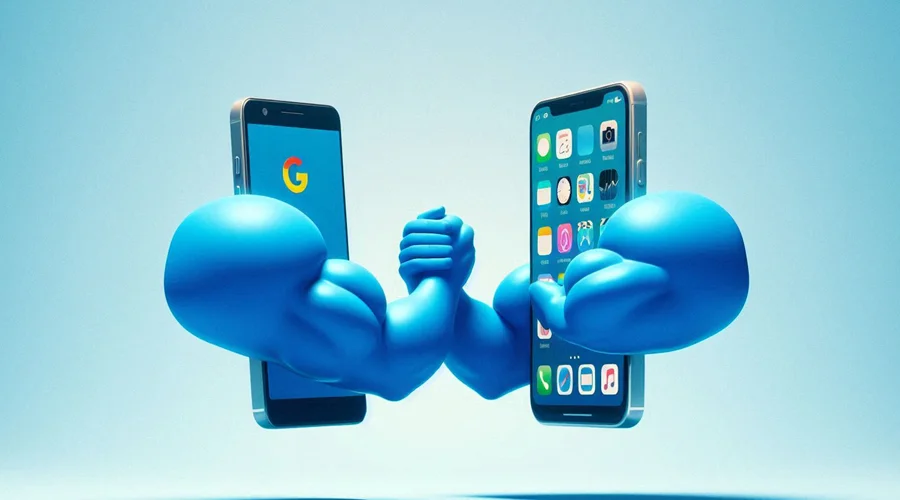Mozilla Study Shows Cars Are a Privacy Nightmare
6 min. read
Updated on
Read our disclosure page to find out how can you help VPNCentral sustain the editorial team Read more

It may not be a well-known fact, but cars are one of the biggest data-harvesting machines.
Mozilla just published the results of its study and it labels cars as the worst product it has ever reviewed for privacy.
Every new car is a privacy nightmare
While Mozilla is famous for its web browser, its Foundation also campaigns for digital privacy standards.
It recently assessed 25 car manufacturers for their privacy policies and the results aren’t great, to say the least.
➡️ In fact, after concluding the study, Mozilla said cars are the official worst category of products for privacy.
To prove that we’re all riding in data-collecting machines, Mozilla made its findings public.
It also said that the study was one of the hardest undertakings its researchers ever had to do, putting in about 600 hours of work.
And as you may already guess, the results are scary.
More data than they need
Mozilla’s stance is that all of these products collect a lot more personal data than they need to get you from point A to point B.
For comparison, only a few mental health apps collect more information than necessary than cars.
Automobiles simply have too much opportunity to do so. They interact with other devices you use while driving and many have their own apps. They can also gather info from third-party sources like Google Maps.
Not to mention that there are cameras, microphones, and sensors that send signals every time you interact with your vehicle.
According to Mozilla’s findings, they use all of this to ?️collect data on your whereabouts, medical information, music taste, and wait for it, even your sex life.
They also don’t have trouble helping themselves with your photos, calendars, and to-do lists.
The Washington Post previously ran tests that proved the computers inside a modern car can generate up to 25GB of data per hour.
Through this, brands invent more data on you, such as your interests, abilities, and intelligence.
Sharing user data
Also worrying is that 84% of car manufacturers share user data, with 76% saying they can sell it.
So, while you’re on the road, you may actually be funding your car brand’s side hustle.
The companies they interact with the most include data brokers and service providers.
56% of manufacturers would also share user data with the government or law enforcement even when there isn’t a court order.
This could likely impact victims of racism, asylum seekers, and those seeking abortions.
People outside of the car aren’t safe either, with vehicles such as Tesla using outward-facing cameras.
Mozilla’s foundation also stresses that these numbers are only available because it’s illegal for manufacturers not to disclose such information.
Lack of user control
Another thing Mozilla learned is that 92% of these companies give their customers very little control over their data.
Out of those surveyed, only Renault and Dacia have mechanisms for deleting such information.
Neither manufacturer operates in the US though.
Researchers say they believe it’s no coincidence these cars are only on the European market, which is protected by the General Data Protection Regulation (GDPR).
According to the researchers, this means manufacturers are doing whatever they legally can to your data.
Poor privacy and security policies
While many car brands have thorough privacy policies, none of them meet Mozilla’s Minimum Security Standards.
It found in its studies that dating apps and sex toy manufacturers provide more detailed security information.
Mozilla’s biggest concern is that it’s unsure whether any brand it looked at encrypts user information.
So, not only are the manufacturers shady about what they do with the data, but they’re also susceptible to leaks, hacks, and breaches.
In the last three years, a whopping 68% of them had bad track records for such incidents.
When it asked them for more clarity, Mozilla only got responses from Mercedes-Benz, Honda, and Ford. However, none of them provided clear answers.
Mozilla went on to call brands’ security and privacy track records embarrassing.
Worst brands for your data
Tesla is the only manufacturer that failed in every category set by Mozilla. This made it only the second-ever product to perform that badly in the foundation’s privacy assessments.
The report mentions that Tesla vehicles have been involved in 17 deaths and 736 crashes. The brand is also under multiple government investigations at the moment.
The second-to-last spot on the list belongs to Nissan.
Many of the findings raised concerns at Mozilla, but none like the fact that the brand collects information about your sex life.
In its privacy policy, KIA mentions it does the same.
Some of the companies said they collect users’ genetic information and genetic characteristics.
No one is really sure why they’d need this data and how they gather it. It’s one of the things that are still keeping researchers up at night.
Only Tesla, Renault, and Dacia are signed on the ALLIANCE FOR AUTOMOTIVE INNOVATION INC’s list of Consumer Protection Principles.
However, Mozilla says that the number of brands that follow these principles is zero.
Unsurprisingly, it’s a list that protects user privacy through concepts such as transparency, choice, and data minimization.
According to Mozilla, this means manufacturers know what they should do to protect your data but choose to ignore it.
What can you do about it?
Well, Mozilla advises you to choose a brand you can trust, but it says there’s a catch – you can’t really trust any of them.
While there are a few things you can do to protect your privacy a bit more, you’re never completely safe.
The best method to minimize the effect this has on you is to limit the car app’s permissions.
The problem is that there’s so much you can’t control. Mozilla cites the lack of choice car owners have as one of the biggest bummers in reading up on automobiles.
It says that many of these companies assume consent to the collection of data by simply being inside the vehicle.
Tesla even advises you to let it gather your info or you’re risking your car suffering reduced functionality, serious damage, and inoperability.
Even after 600 hours of researching, Mozilla doesn’t have a full picture of what information car manufacturers take from you.
The researchers say the best thing we can do is spread awareness about this. That way, we can hope brands will start doing something differently.
Mozilla even started a petition for car companies to respect drivers’ privacy and alter their data practices.
You can sign it if you want to participate in bringing, as it looks, some much-needed changes.
With 95% of new vehicles being connected by 2030, this may be a good time to act.







